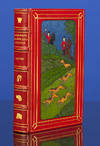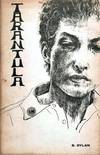
Important 1824 Autograph Letter Signed of English Poet Laureate Robert Southey to His Lifelong Friend Rev. Peter Elmsley, Likely Regarding Proofing His Landmark Work the ""Book of the Church""
- Used
- Signed
- Condition
- See description
- Seller
-
Ardmore, Pennsylvania, United States
Payment Methods Accepted
About This Item
Robert Southey was an English poet of the Romantic school, and Poet Laureate of England from 1813 until his death. He was also author of the most popular version of Goldilocks and the Three Bears.
Autograph Letter Signed, 4 pages, Keswick, March 22, 1824, to “My dear Elmsley. Whether my book goes soon to a second edition or not I shall be much obliged to you if you will point out any statements or inferences in it which may seem erroneous. The one which you have instanced (except in the printer’s blunder) rests upon the authority of Laud himself, as you may see at the end of his diary – in the thick of his troubles, p. 68. This is not stated as an instance of his generosity but as one of those cases in which he had employed his influence for the advantage of the church. With regard to the tone of the book, it certainly was my intent & hope in writing it that it might tend to excite & strengthen a spirit of opposition to what is called Catholic Emancipation, for if that question were cased I do not think any political consequences could ever more clearly & certainly (speaking as to human probabilities) be predicted than the overthrow of the present establishment. The Text Act must then of course be repealed. The defector’s work began with the romanticists & such of the squirarchy as are not say in propriators with both. Then away go the tithes either to suit the convenience of a needy minister or to gratify the wishes of a Whig one and in a second Reformation the church would lose all that was saved from the first. There is, however, nothing intolerant in my feelings. What I maintain is that it is a solecism in politics to admit any person to a seat in Parliament whose religious duty it is to overthrow, if he can, the eccl. Establishment. There are other ways to heaven besides the King’s Dunstable Road but there should be no other road to Parliament. Let them go to heaven by any byway they please. My book would have been better if I had been in reach of libraries. It is beyond the reach of ordinary private means (much more such limited ones as mine) to be provided for such a subject even with all the aid a publisher can be called on to afford. The only assistance I have within reasonable bounds is from Lowther & the library there is very far from being complete in any single department. I found, however there a rich collection of pamphlets published during the civil wars. It is not improbable that if this sketch of the church history should obtain a good sale I may seriously think of giving a similar view of our political revolutions. You are right in preferring a continental journey to a northern one in your own country. Were I a single man I would make such an annual jaunt also & indeed I still dream of seeing Rome before I did. But remember whenever you are disposed to turn your steps this way we shall be heartily glad to see you. You will find old friends with old faces compared to those with which you saw them last. God bless you. Yours most truly, R. Southey.” Very good. Southey and Rev. Peter Elmsley were schoolmates and remained close throughout their lives.
The reference to Laud must be to Archbishop of Canterbury William Laud who was executed in 1645 by Oliver Cromwell for his Church of England views and opposition to Cromwell’s Puritanism, thus the probability that the letter refers to Southey’s 1821 book Life of Cromwell. After 1814 and the publication of his famous poem “Roderick the Last of the Goths” Southey turned mainly to biographies and articles, his poems mostly being only ones necessary as Poet Laureate.
Reviews
(Log in or Create an Account first!)
Details
- Bookseller
- The Raab Collection
(US)
- Bookseller's Inventory #
- 27505
- Title
- Important 1824 Autograph Letter Signed of English Poet Laureate Robert Southey to His Lifelong Friend Rev. Peter Elmsley, Likely Regarding Proofing His Landmark Work the ""Book of the Church""
- Book Condition
- Used
- Date Published
- 22/03/1824
Terms of Sale
The Raab Collection
10 day return guarantee, with full refund excluding shipping costs for up to 10 days after delivery if an item is returned in original condition

